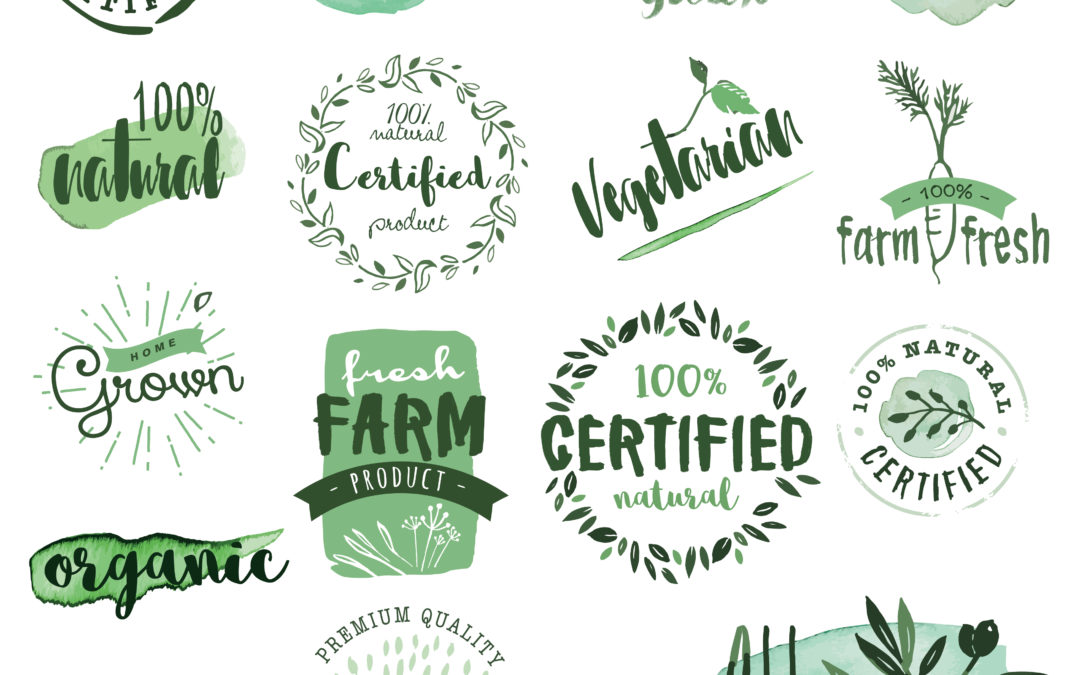Organic vs. Conventional is there a difference?
When Whole Foods moved into our community, I would sit around with friends laughing at who would be crazy enough to shop there. A store we dubbed “whole paycheck.” We called it silly and overpriced. I don’t remember the exact time or reason I first walked into Whole Foods, but what I can tell you is I never looked back. Now I belong to the group of folks that shop in that silly, overpriced store. Shopping there opened my eyes, and I started to ask questions and research food quality and the difference between organic vs. conventional foods.
Organic vs. Non-Organic
Organic
What is organic food? According to the USDA, “organic food is produced by farmers who emphasize the use of renewable resources and the conservation of soil and water to enhance environmental quality for future generations.”
Organic dairy, eggs, meat are grown without any antibiotics or growth hormones. Food must be produced without synthetic substances, non-synthetic substances, all substances non-organic used in or processed products and non-GMO. It’s made without sewage sludge or ionizing radiation.
To be labeled organic it must have fertilizers, such as manure or compost to feed soil and plants. They use insects and birds, or mating types to reduce pests and disease. They must rotate crops, till hand weed or mulch to manage weeds. Animals are given organic feed and allowed access to the outdoors. Use preventative methods such a rotational grazing to help minimize disease.
Conventional
Conventional foods are regulated mostly by the FDA, the Federal Drug Administration with a small amount overseen by the USDA. In the FDA there is a small group called the NOP the National Organic Program. Under these regulations, conventional farmers are allowed to use chemical fertilizers to promote plant growth. Apply insecticides to reduce pests and disease. Use chemical herbicides to manage weeds and give animals antibiotics for hormones, medications to prevent disease.
Labels
Labels can be confusing Organic; natural is it the same? The simple answer is no. Here is a simple breakdown of the difference. Use caution when the label reads organic. It means just that, it may only have one ingredient that is organic or a percentage of the total product that is organic. Look for USDA Organic, NON-GMO Project verified.
| Ingredient/Processing | Organic | Natural | Conventional |
| Artificial flavors | Never | No | Maybe used |
| Artificial colors | Never | No | maybe used |
| Artificial preservatives | Never | No | Maybe used |
| Artificial fertilizers | Never | Maybe used | Maybe used |
| Artificial pesticides | Never | Maybe used | Maybe used |
| Irradation | Never | Maybe used | Maybe used |
| Genetically Engineered Ingredients | Never | Maybe used | Maybe used |
What’s the difference?
| Everyday On Farm dairy practices | Natural dairy | Organic dairy |
| Toxic synthetic pesticides, herbicides, fungicides or fertilizers | Allowed | Never |
| Animals confined without outdoor access | Allowed | Never |
| Animals feed may be grown with sewage, sludge & GMO, containing animal byproducts | Allowed | Never |
| Antibiotics used to compensate or an unhealthy diet & stress | Allowed | Never |
| Animals injected with growth breeding hormone | Allowed | Never |
| Ever increasing amounts of soil damaging synthetic nitrogen fertilizers & pesticides used to make food grow | Allowed | Never |
Is organic food better for me?
The jury is divided, significant research from one side reveals it is more nutritious; the other camp would argue there isn’t enough evidence to support this. What we do know is when buying organic you are reducing your families toxic level exposure for all the reasons we discussed earlier. We do have research to show the chemicals on conventional foods leave a toxic residue on the outside as well as on the inside. These toxic chemicals affect our health and are linked to health conditions. Special note: because organic food isn’t treated with preservatives and waxes aren’t applied food doesn’t last as long.
Increased cost with Organic?
The organic industry is growing quickly; it’s one of the fastest growing areas in agriculture. So, the prices are coming down. They competition is greater as the demand increases, so the prices are better than ever. There used to be a handful of expensive health food store to purchase organic. Now local warehouses are stocked with a large selection. Also, look at the health care cost. If your eating healthier your overall health will be better and less out of pocket healthcare costs to you.
Some tips on purchasing organics
- shop in season.
- Look for what’s in season and local in your area.
- Go to a local farmers market.
- Today many local farmers deliver right to your door. Split the delivery with a friend and make it afforable.
Also, Know the Dirty Dozen Clean Fifteenput out each year by the EWG. You can then make your purchases of necessary organics and stick to a budget. Keep in mind even with all produce you still need to wash before use Homemade Fruit + Veggie Wash


